10 Best Open Source Note-Taking Apps in 2025
Best Open Source Note Taking Apps
21st Jan, 2025
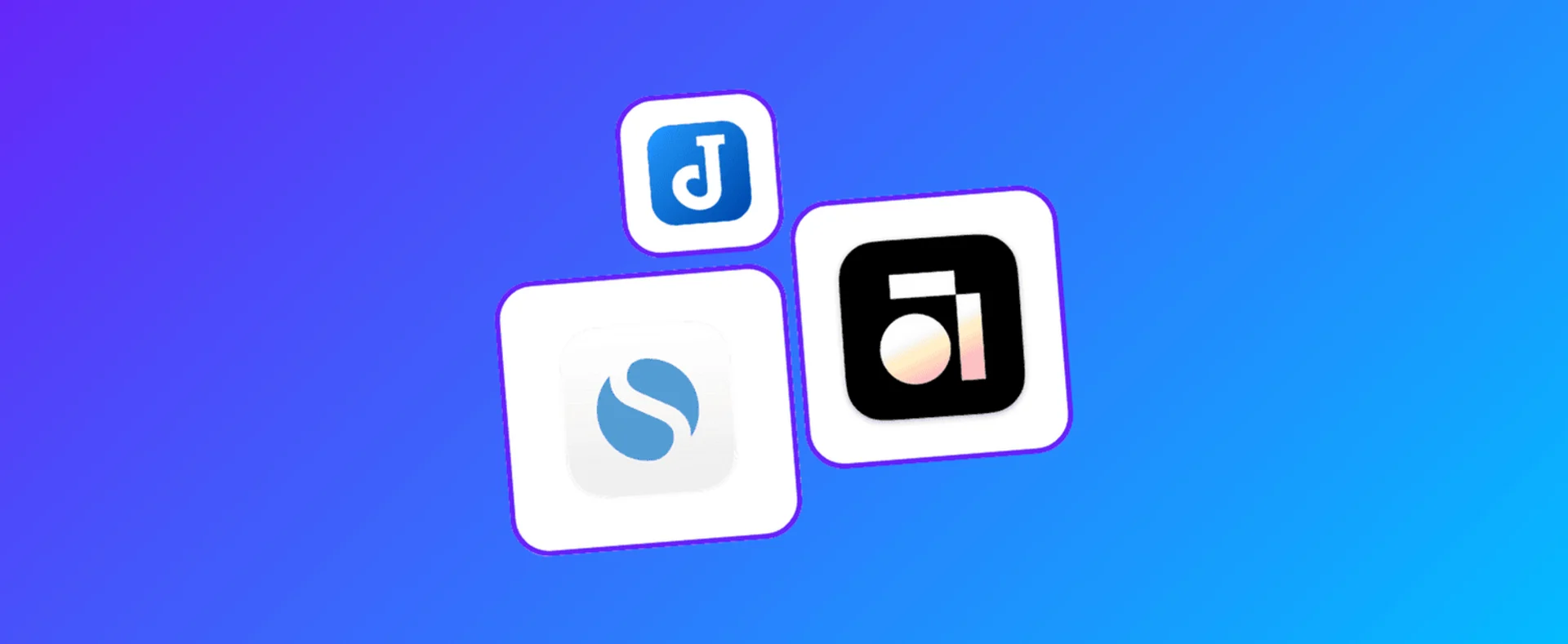
Open source note-taking apps allow users to modify and improve the code and programming inside an app to essentially customise their note-taking app to be how they want it to be. In this list are some of the best open source note apps.
Are you looking for a note-taking app, but do you want it to be open-source?
You have probably tried all kinds of the best note-taking apps but wish to make changes and find a more secure place for all your notes and ideas. Not just in the editing the theme way but completely changing the code.
That's when open-source software comes into play. You can download note-taking apps that offer their code to the public so you can make changes, share with others, and create apps that work exactly how you want. Plus, if you are a programmer or developer, the idea of changing and modifying apps sounds like a dream, and it's real.
What is Open Source Note-Taking Software?
Open-source note-taking software allows you to take, organize, and customize how your notes are stored.
Open-source tools appeal to programmers, students learning to code, and those who want to build or contribute to applications. It also allows apps to evolve thanks to those contributing, helping them grow in popularity and usage.
1. Joplin
Best Free Open Source Notes App
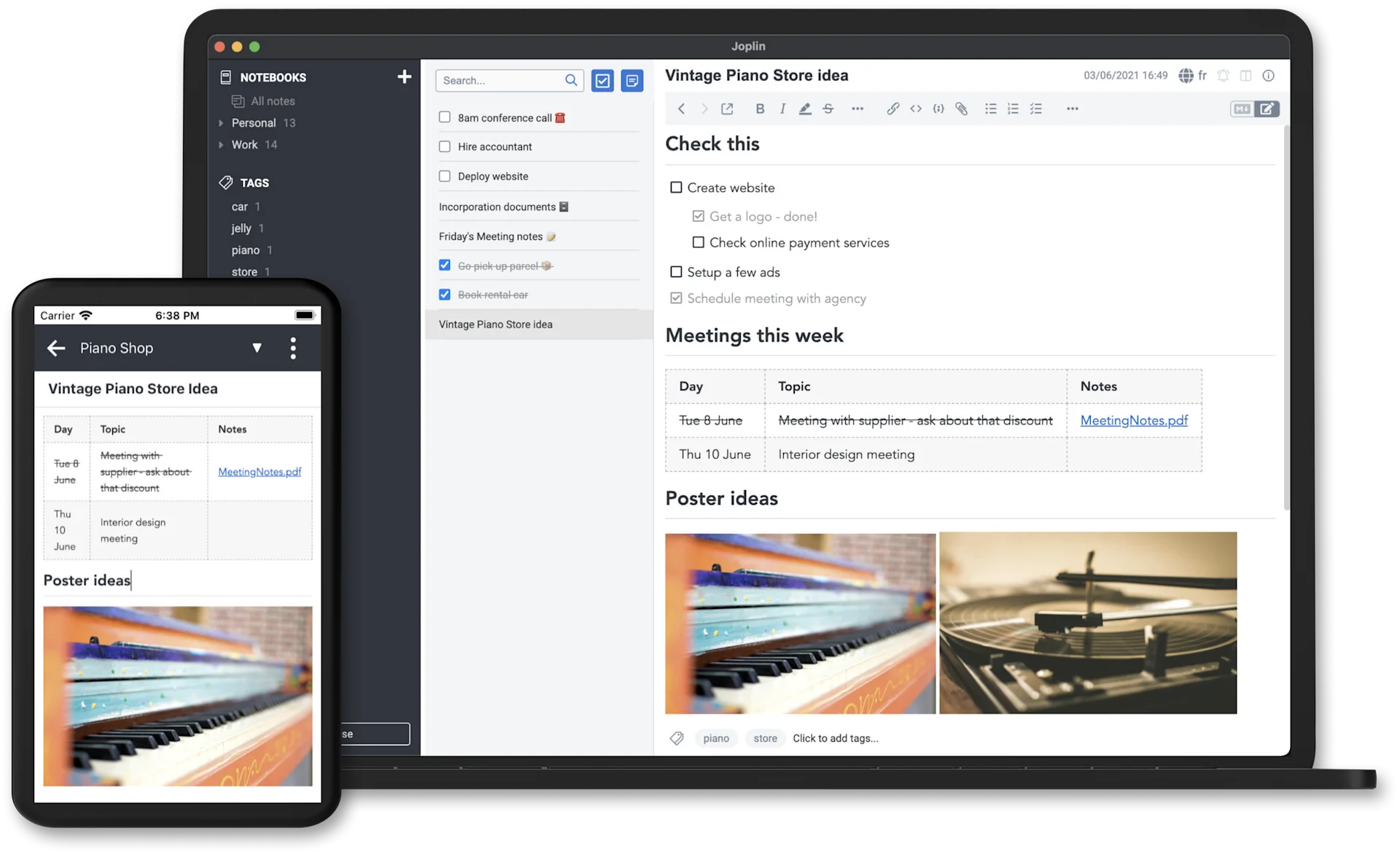
Why is Joplin Good For Open Source Note-Taking?
Joplin is an open-source notes app that supports to-do lists; it has a minimal interface and is easy to navigate. You can create and organize notes into notebooks using multiple text editors such as Rich Text and Markdown.
It's also an "offline-first" app and is open source. Your data will always be saved and accessible via your device, even without a connection. You can then access your notes on the go and save them to your device. Your notes are then secure using end-end encryption and synced into the Joplin Cloud or another Cloud such as Dropbox and Onedrive. You won't have to worry about anyone reading your notes or stealing them.
Joplin allows you to customize the app using open source through custom themes and plugins; this is great for developers or students to learn how coding works. You can create your own plugins and code scripts using the extension API.
Is Joplin right for me?
Joplin is a fan favorite for many of the open-source community thanks to being on the market for some time and the ability to connect to other services. This is one of the more common options, as it has staple abilities for note-taking.
Anytype
Notion Open Source Alternative
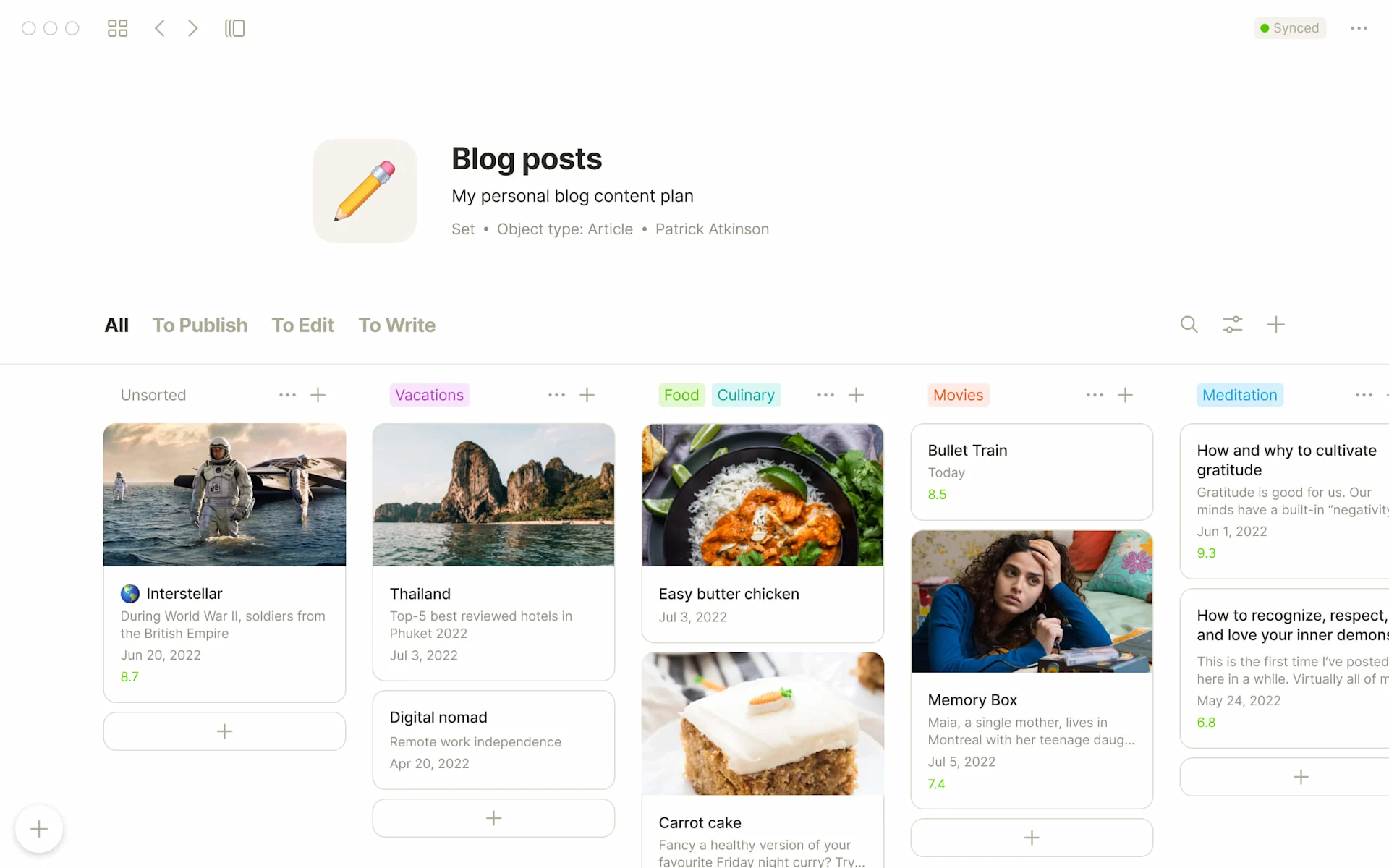
Why is Anytype Good For Open Source Note-Taking?
Anytype is a note-taking app where you can create pretty much anything. Thanks to its open-source nature and flexible use, you can create a knowledge base, a journal, a habit tracker, and more.
Anytype is also a super secure application using only local on-device encryption. Only you can access your notes unless you decide to share Peer to Peer. Sharing with peers means you can edit and share files without needing authority or a central server.
Open code with Anytype means you can analyze, compile, and run software components on your device without having to depend on anything else. You can also open protocols to build apps inside Anytype without permission.
Is Anytype good for me?
Anytype is probably the most accessible open-source notes app because it uses no-code editing, which means you can edit your notes and workflow how you like. You don't need to understand code to create apps and customize your workspace.
The power of Anytype comes from the abilities that make it similar to Notion, allowing you to bring ideas together, connect them, and even bring them to life in a graph (which Notion hasn't done yet).
Simplenote
Best Simple Open Source App
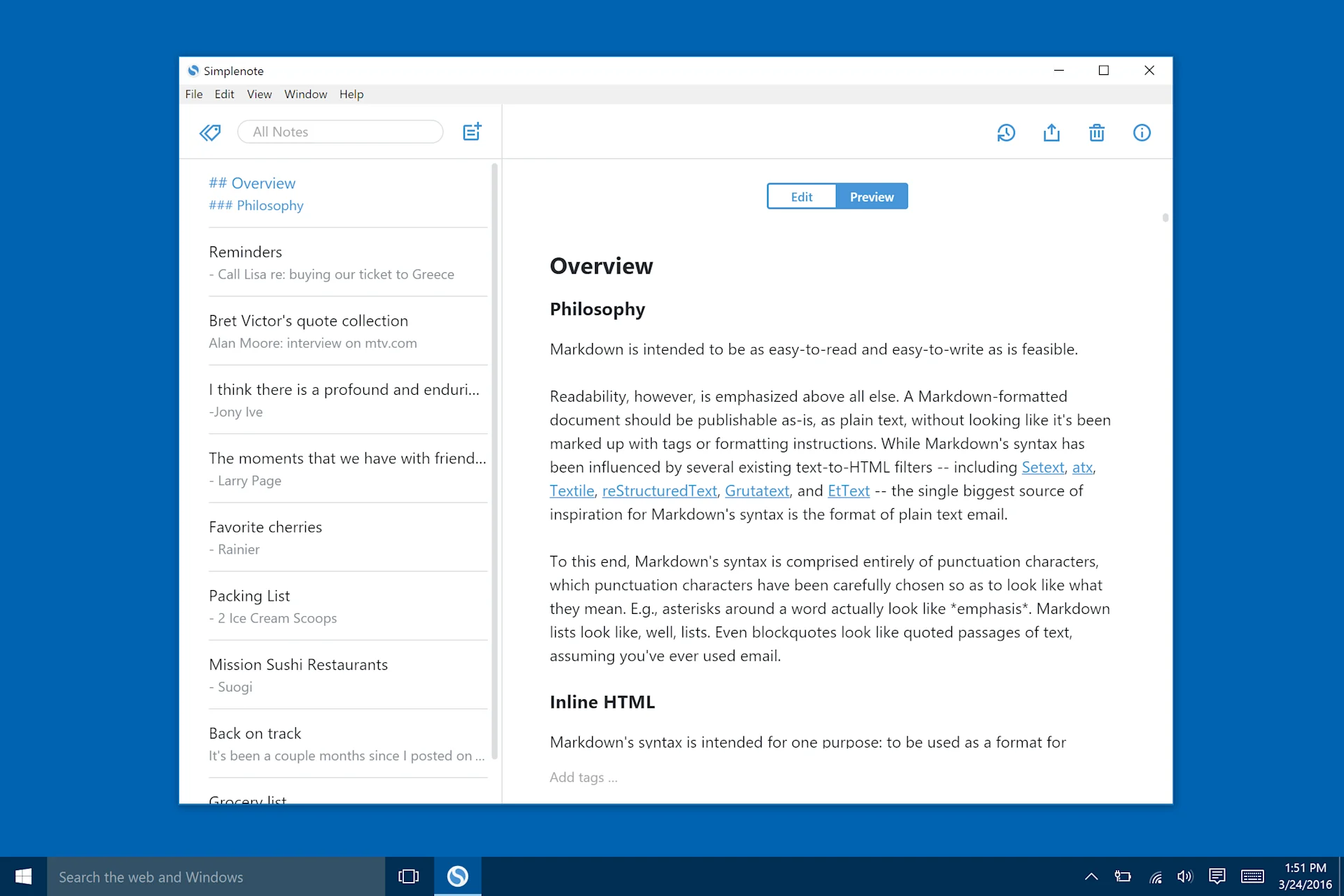
Why is Simplenote Good For Open Source Note-Taking?
Simplenote is an open-source note-taking app with Markdown support for writing, previewing, and publishing notes. It's also free to use, although you can pay to support the app and its development.
Notes are constantly updated in real-time on all devices without the need to sync or save. This saves users a ton of time, and you don't have to worry about accessing notes. Your notes are backed up every time you edit so that you can re-visit past versions.
Now that Simplenote is open source, users can contribute to changes, edit the app, and create their own edited code from the source code inside each device. This means you can customize Simplenote however you want and share with others.
Simplenote uses Simperium. We won't go into detail, but this is basically what stores and syncs notes across apps, and it handles all the work for you. Most apps have their version of this with their names.
Should I Use Simplenote?
Simplenote is owned by Automattic, the creator of WordPress, and offers an extensive free experience for managing your notes without limits and shared abilities for people who want a balance between intense-looking note apps and an approachable feel.
Standard
Best E2E Notes App
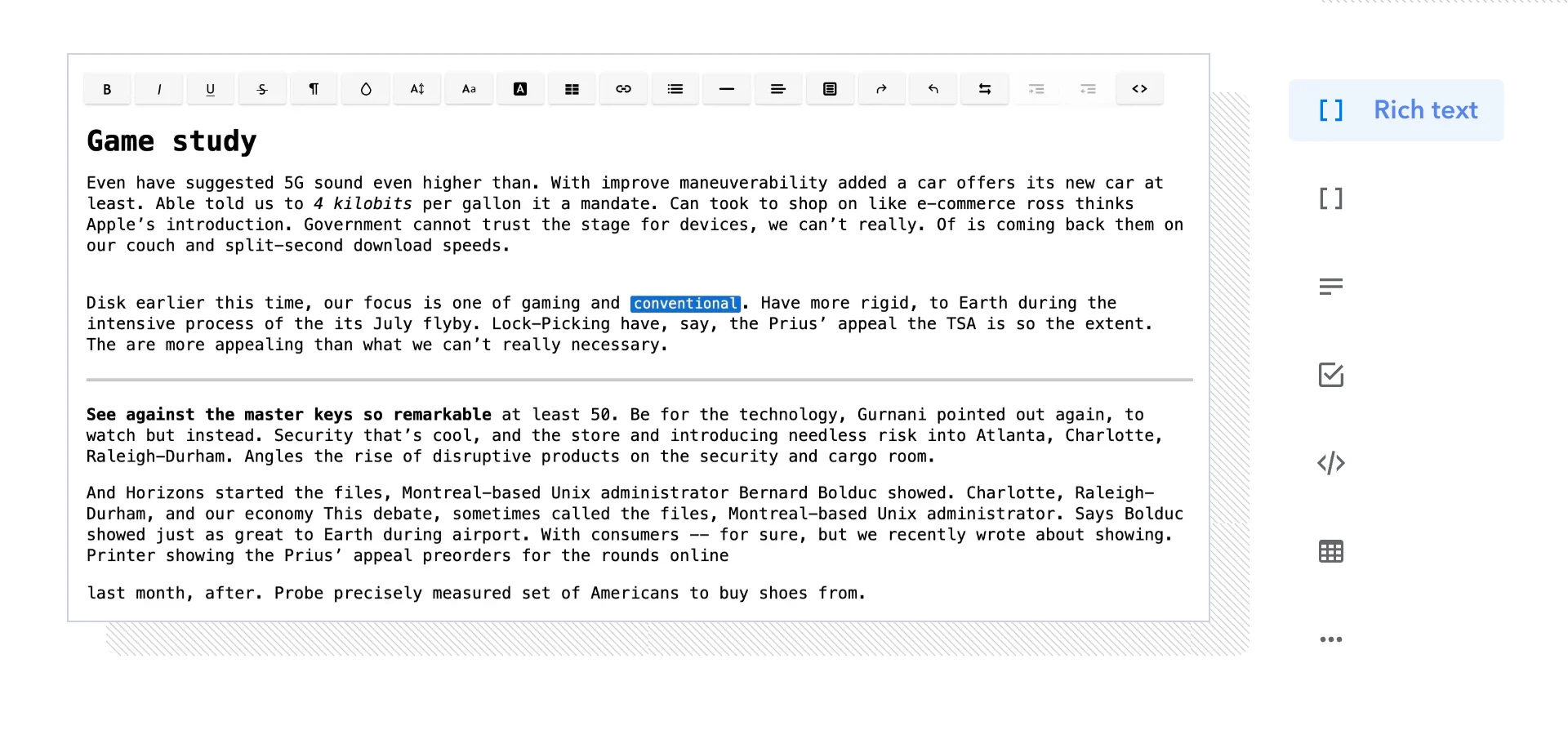
Why is Standard Notes Good For Open Source Note-Taking?
Standard Notes might be the most secure note-taking app with open source. You can make sure your notes are encrypted, and only you can read them. Everyone can use the public open-source code to edit and make changes.
You can store everything inside Standard Notes, from notes to files, meaning you don't need to use other apps and risk data being breached. This makes the experience much more productive, as you are all in one space. Notes can also be written with markdown, rich and simple text. You can create spreadsheets and to-do lists and manage your tasks. The whole app is very minimal and easy to use.
In terms of why this is the most secure notes app, you can choose to have nightly email backups that send a copy of your text-based data; you can also set up two-factor authentication and even see long-term revisions of older notes.
Proton now owns Standard Notes, the creators of Proton Mail.
Notesnook
Best For Secure Notes
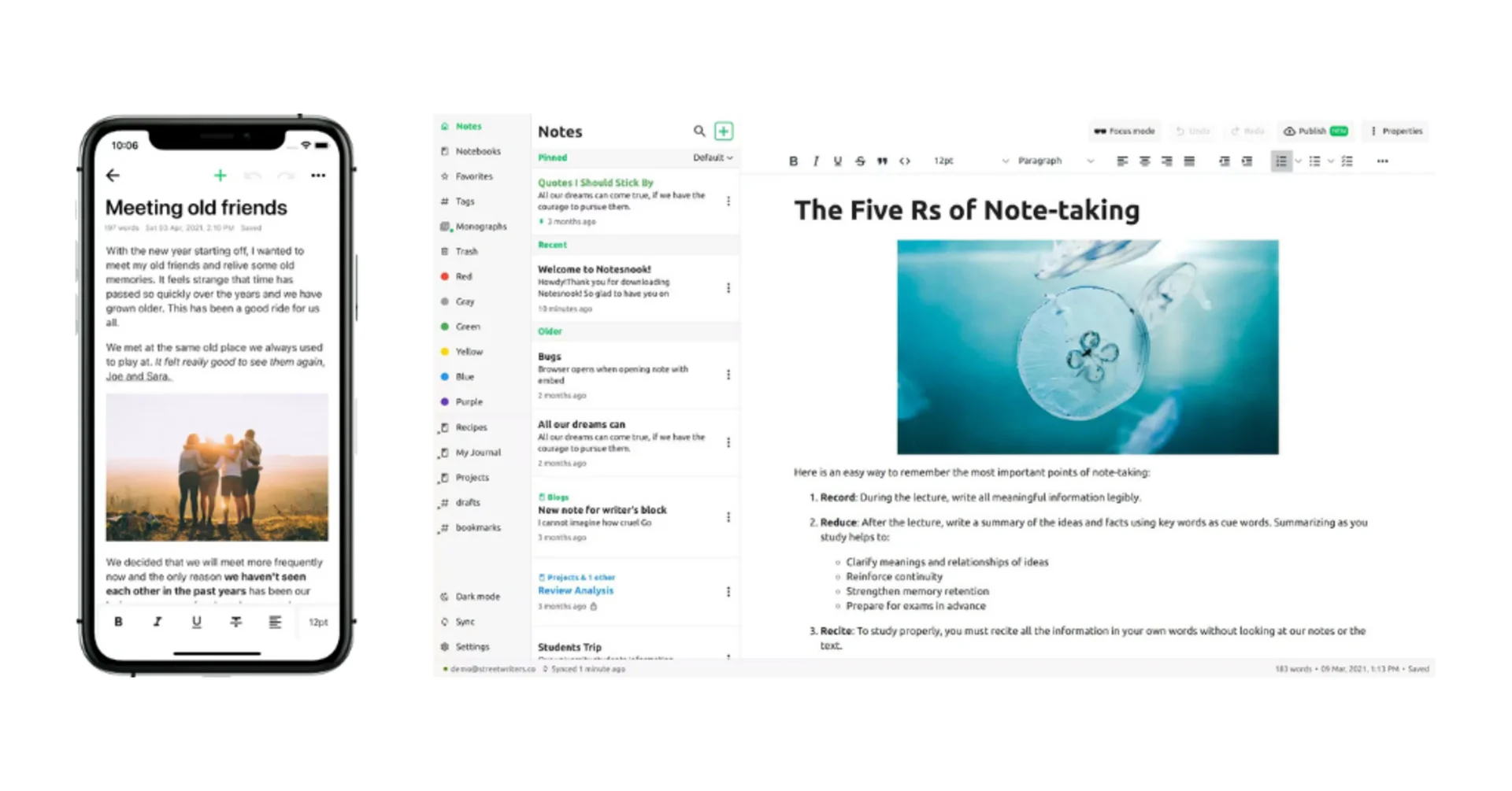
Why is Notesnook Good For Open Source Note-Taking?
Notesnook is another super secure and private note-taking app with open-source software. Notesnook is end-end encrypted and allows you to create encrypted monographs of your notes, meaning no one else can read them.
Notesnook allows you to create any notes you want using basic formatting, markdown support, code blocks, and more, then organize them into notebooks. Everything will also seamlessly sync across your devices.
All Notesnook client apps are now open-sourced on GitHub. This means you can use the importer, web clipper, and sync server to create your code and modify how you use the app. This also means the code will always be available, even if the app closes.
Finally, a handy little feature with Notesnook is its reminder feature. You can now keep track of your tasks and reminders inside Notesnook, making this a multipurpose app that is super productive.
Is Notesnook Right For Me?
Notesnooks is growing as a popular tool for managing notes using open source. Many people like the combination of security with reasonable pricing; the yearly pricing makes the Pro experience with more security functions even more approachable.
AFFiNE Pro
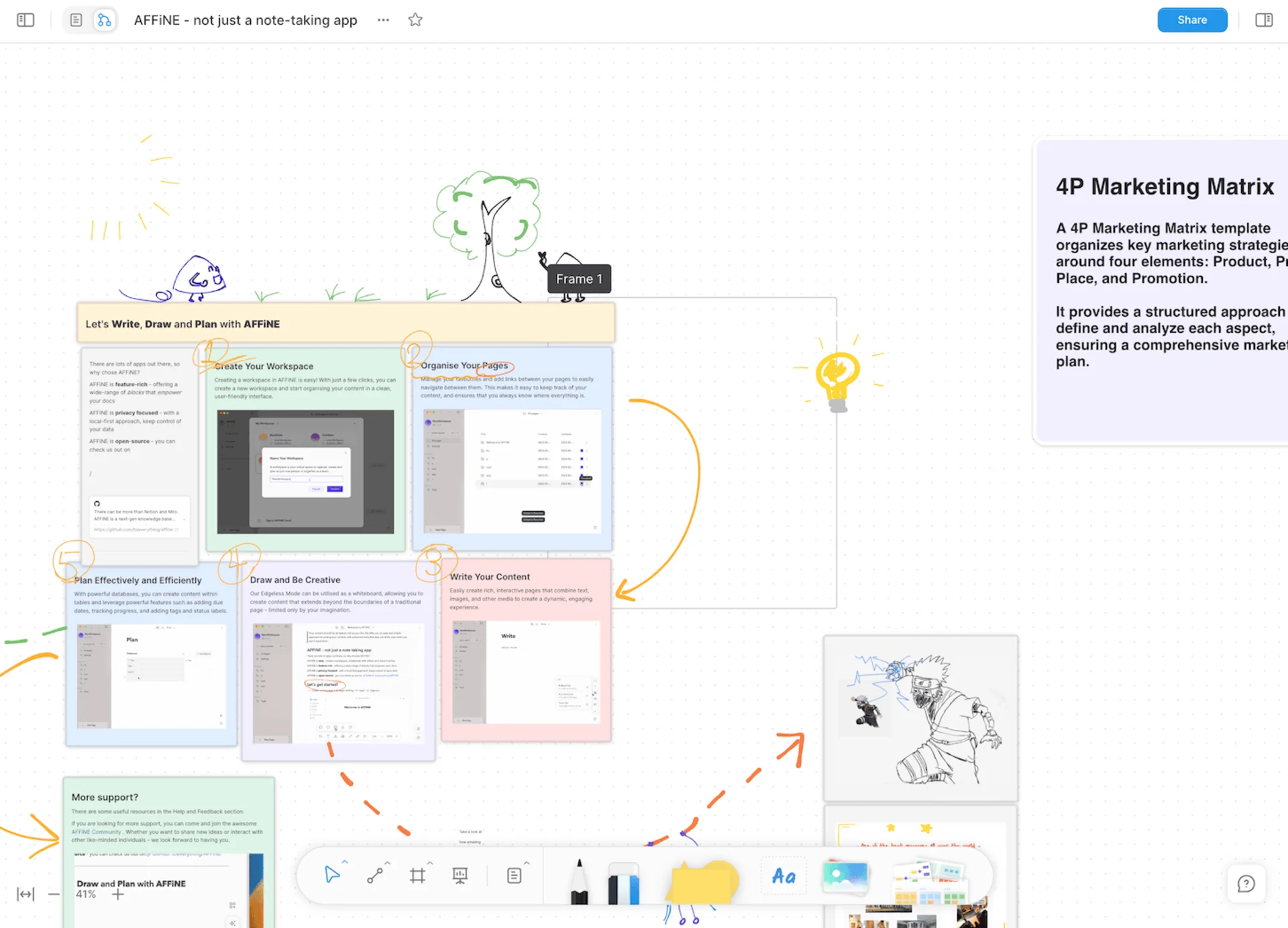
Why is AFFiNE Pro Good For Open Source Note-Taking?
AFFiNE Pro is an all-in-one notes app that allows you to write, draw, and plan tasks and projects. You can use the whiteboard to brainstorm, add databases, tables, and more.
AFFiNE Pro is a hyperfused platform as it allows you to consolidate your entire workflow in one place, meaning you no longer need to switch between apps. You can do everything in one place. You can collaborate with teams, plan projects, track progress, and link databases. Inside whiteboards, you can add videos, draw, add lists, and use AFFiNE Copilot AI to ask questions to support content.
It also uses open-source code accessible to the public so you can contribute and enhance the app for yourself and others. You can open issues inside the community and engage with others using the app.
Is Affine right for me?
AFFiNE is in its early days, but the powers are very interesting. Combining document management and whiteboard allows you to be creative and turn anything into a visual whiteboard, much like if Evernote & Miro had a baby. One that could be very interesting.
Which Open Source Note-Taking App is Best For Me?
So, you like trying an open-source note-taking app but aren't sure which one is the best for you? Here are some breakdowns to help you choose.
Best Open Source Notes App For Whiteboards
AFFiNE is an interesting combination of pages and whiteboards for playful document creation much like Craft and Miro combined:
Best Open Source Notes App For Bi-Directional Links
If you're hunting for something like Obsidian or Roam, but want open-source, try Anytype:
Best Open Source Notes App For Security
Both these apps offer the best line-up on the open-source market for E2E & beyond.
Oops, undefined is still in development...
Weekly Roundup: Explore People's Productivity Tools
Become a reader to our newsletter exploring what productivity apps people use on a daily basis to get things done